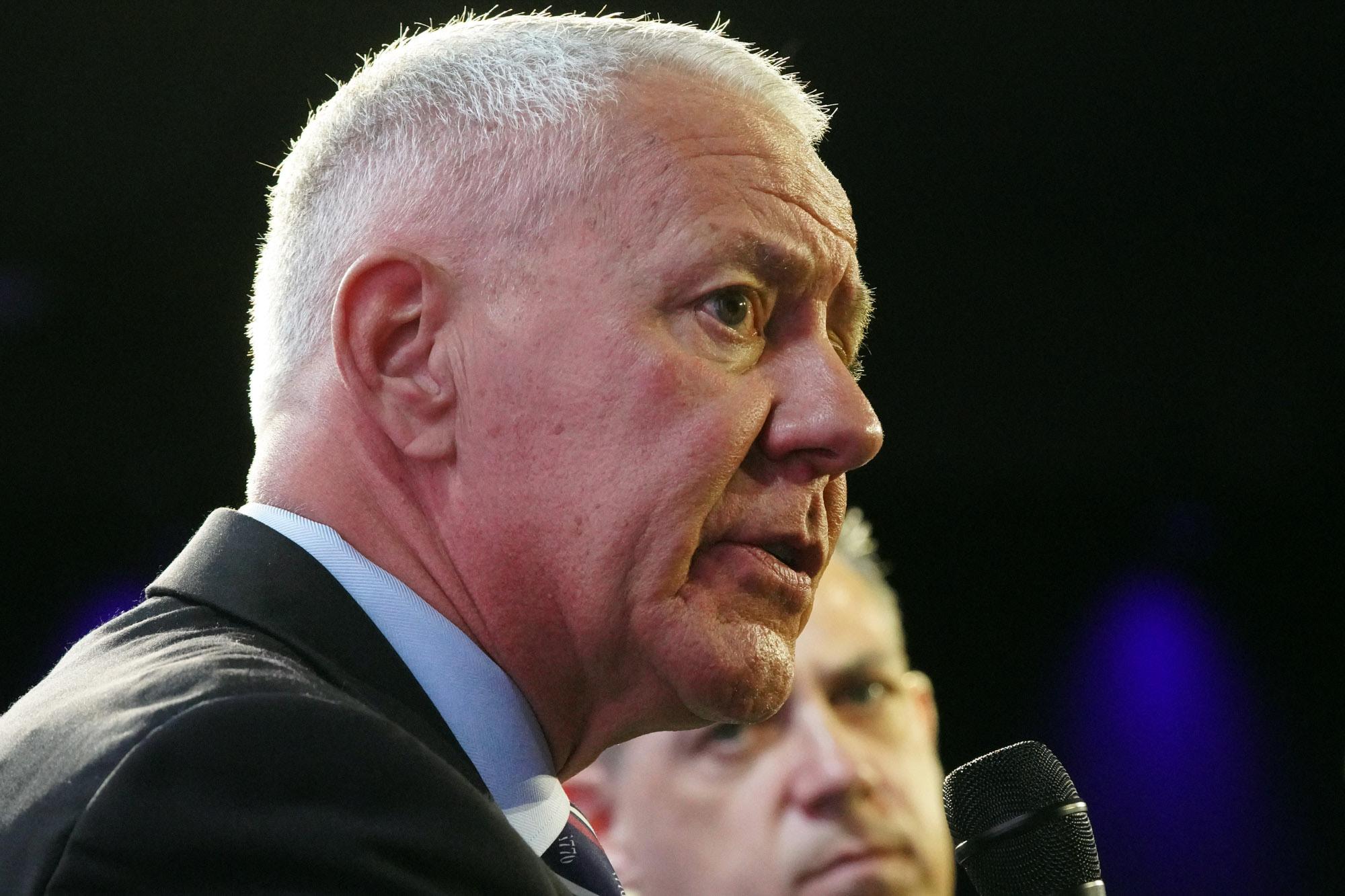
Republican Congressman Ken Buck was on the House floor when his Democratic colleague Ted Lieu approached him with an idea: would he be interested in a bill to ensure that artificial intelligence could not launch nuclear weapons?
“We’ve all seen the sci-fi movies where artificial intelligence takes over and fights wars,” Buck said. For him, it makes sense to have a human, and “probably more than one, to make these decisions.”
Buck and Lieu are sponsors of the Autonomous Artificial Intelligence Act along with Democratic Rep. Don Beyer. It’s a bill to ensure a human being would always be in charge of nuclear targeting and any potential launch.
“The bill is important to make sure there are no accidents in the use of nuclear weapons and that there are humans that are making responsible decisions,” Buck said. He and Lieu have worked together before, having entered Congress together in the same class and both serving as their respective party’s freshman class president.
In a statement, Lieu called it forward-thinking legislation. “While we all try to grapple with the pace at which AI is accelerating, the future of AI and its role in society remains unclear. It is our job as Members of Congress to have responsible foresight when it comes to protecting future generations from potentially devastating consequences.”
They’re joined in this push by Massachusetts Sen. Ed Markey, who introduced the bill in the Senate.
Markey said currently only the thinnest protections are in place and the bill is about making those safeguards more robust and “that we have a new set of standards which we establish, new protocols, in order to protect against the worst.”
Buck has focused on technology in recent years. “What we have to make sure is we learn from the failure of government to oversee the development of Big Tech where you had two or three giants that were really accumulating huge amounts of wealth and at the same time, stifling innovation, we have to make sure that there's competition in the AI marketplace so that the players are competing for the best outcomes.”
He’s optimistic that the bill could pass the House with strong bipartisan support.
AI is having a moment in Congress — a number of bills have been introduced to deal with this growing technology.
Colorado Sen. Michael Bennet is leading a bill, Assuring Safe, Secure, Ethical and Stable Systems for AI (ASSESS AI), that would set up a task force to look at the responsible use of AI by the federal government.
“As the deployment of AI accelerates, the federal government should lead by example to ensure it uses the technology responsibly,” Bennet said in a statement. “Americans deserve confidence that our government’s use of AI won’t violate their rights or undermine their privacy.”
Senate Majority Leader Chuck Schumer is also looking at a broad, flexible policy framework for AI to build guardrails when it comes to the use of the technology, while House Speaker Kevin McCarthy had professors from MIT come to the Capitol to brief lawmakers.
On the other end of Pennsylvania Ave, the White House held a closed door meeting with CEOs of companies working on AI innovation, such as Alphabet’s Google and Microsoft, “to share concerns about the risk associated with AI” according to a readout of the meeting.
The White House also announced steps it was taking to deal with the issue, including $140 million for seven new National AI Research Institutes, as well as plans to issue “clear policy guidance” on how AI is used by the federal government.
Still, Buck said what the country needs is a clear law, at least when it comes to AI and nuclear weapons.
“Some future administration could change a policy. They can't change a law without coming to Congress. So that’s why we really focused on making sure that this was a law,” he said.









